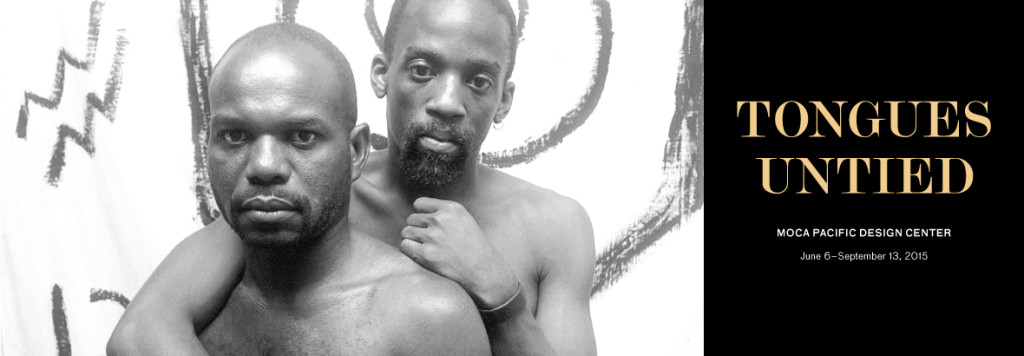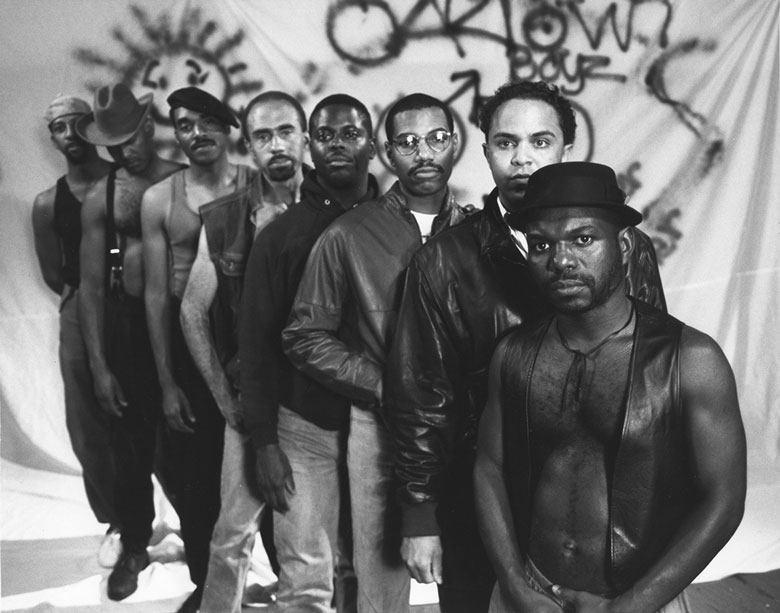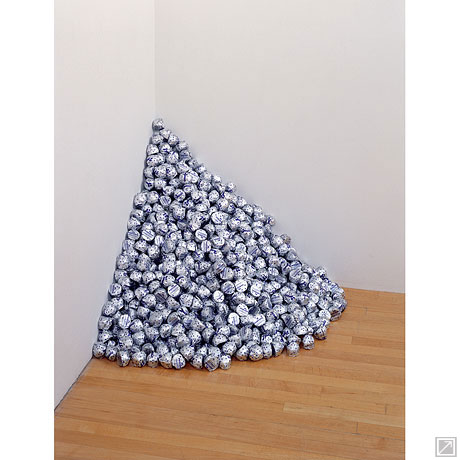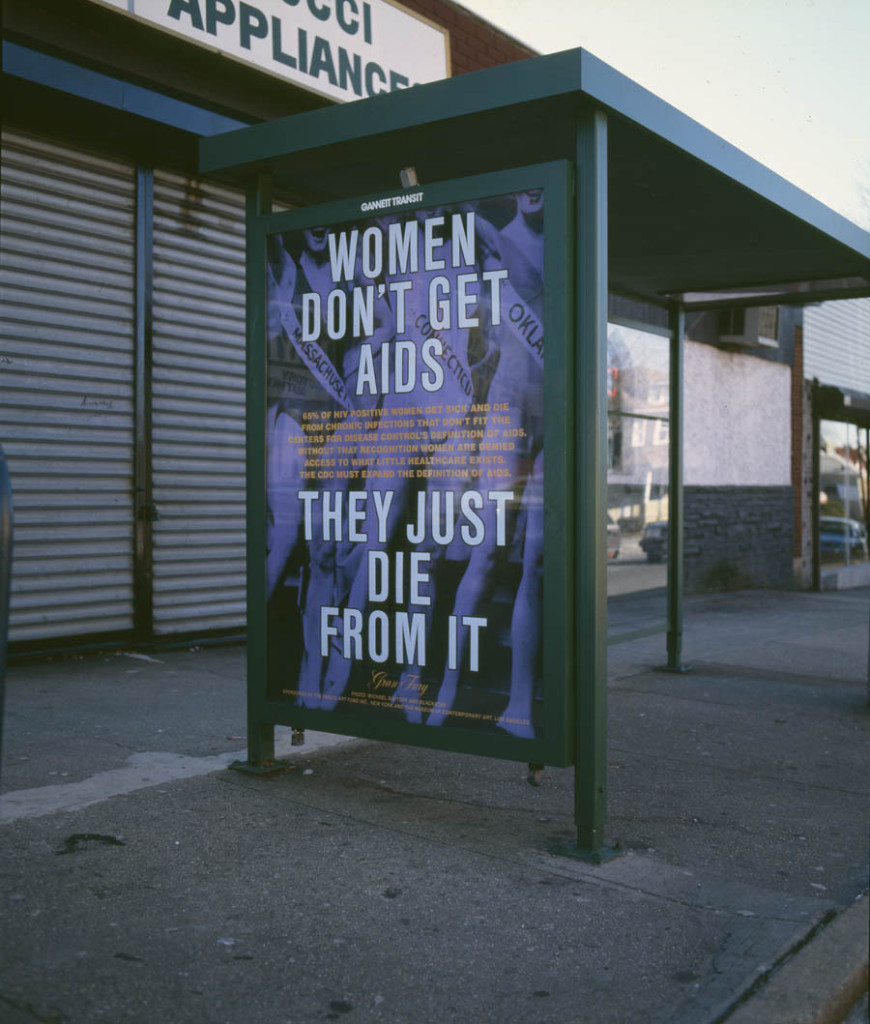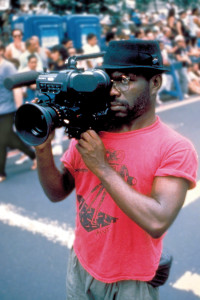
Tongues Untied
Until September 13, 2015
MOCA Pacific Design Center, Los Angeles.
About:
The Museum of Contemporary Art, Los Angeles, presents Tongues Untied, an exhibition titled after the landmark film by poet, activist, and artist Marlon Riggs. Tongues Untied presents a selection of works from the museum’s permanent collection by John Boskovich, Felix Gonzalez-Torres, and others, alongside Riggs’s deeply personal and lyrical exploration of black gay identity in the United States. Made during a historical period marked by the onset of the AIDS crisis, the works navigate desire, love, loss, and mourning to engage and question sexual and political repression, expression, and deviation. This exhibition coincides with the 30th anniversary of the City of West Hollywood and is presented in concert with a celebration of its activist history.
Tongues Untied’s centerpiece and title-work is a 1989 feature-length video essay that mixes documentary and archival footage, personal testimony, dance, poetry, and music. Riggs’s (b. 1957, Fort Worth, Texas; d. 1994, Oakland) semi-autobiographical coming-of-age story is told through a multiplicity of perspectives, including those of the late writers Joseph Beam and Essex Hemphill, and gives voice to a collective expression of rage, pleasure, pain, and humor in equal measure. Tongues Untied is an elegiac, erotic, and challenging portrait of “black men loving black men” in the face of racism, homophobia, and the attendant alienation experienced in being African-American, gay, and a gay African-American. During public hours the film will screen every hour on the hour.
Still from Tongues Untied.
Still from Tongues Untied.
Felix Gonzalez Torres, Untitled, 1990.
When the film was broadcasted on PBS on July 16, 1991, it was met with both critical acclaim and condemnation from cultural conservatives. Two-thirds of the network’s affiliates declined to air the film; right-wing Presidential candidate Patrick Buchanan illegally excerpted a section of the film during his election campaign and labeled it “pornographic and blasphemous art.” In response, Riggs penned an op-ed for The New York Times in which he incisively critiqued the Republican leadership’s persecution of racial and sexual difference by stating that “the vilest form of obscenity these days is in our nation’s leadership.” Riggs produced five more films before his untimely death due to complications from AIDS.
Also included in the exhibition is John Boskovich’s IT Series (1992-96), a collection of thirty-eight matted and framed Polaroid photographs of the artist’s apartment. The series presents domestic images—such as a television screen, friends, objects, and encounters—together with affirmations from a self-help book. Made over a period of years the work in many ways chronicles and culminates with the AIDS-related death of Boskovich’s partner. Felix Gonzalez-Torres’s “Untitled” (A Corner of Baci) (1990) consists of forty-two pounds of Perugina Baci chocolates spilled in a corner. Viewers are encouraged to take a piece and the work is replenished weekly. An allegory for loss (of weight, of hope, of friends and lovers) and renewal, the work—like Boskovich’s series of photographs and Riggs’s film—is also a form of portraiture.
Poster Gran Fury.
The exhibition is accompanied by a selection of archival materials from MOCA’s queer-related programming during the plague years of the AIDS crisis. This programming included a citywide bus shelter project by artist collective Gran Fury, and Roy Cohn/Jack Smith, a solo theater piece conceived and performed by Wooster Group member Ron Vawter at the museum’s Ahmanson Auditorium in 1992. The archival display will be accompanied by Leslie Thornton’s short film The Last Time I Saw Ron (1994).
Tongues Untied is organized by The Museum of Contemporary Art, Los Angeles, and Curatorial Assistant Rebecca Matalon, and coincides with the 30th anniversary of the City of West Hollywood.
Generous support for MOCA Pacific Design Center is provided by Charles S. Cohen. (press text museum)

